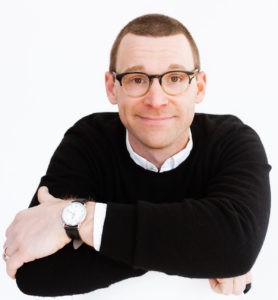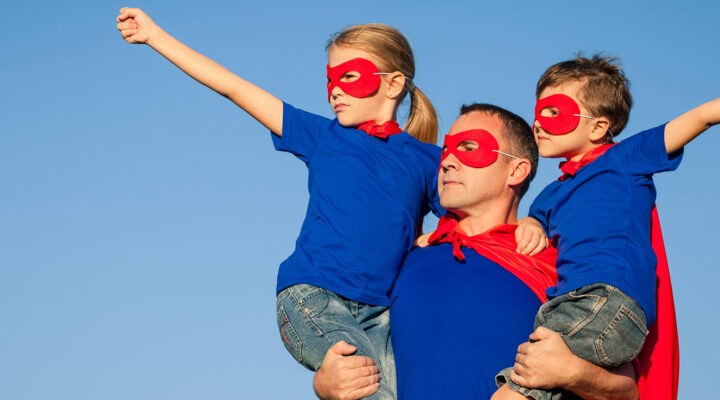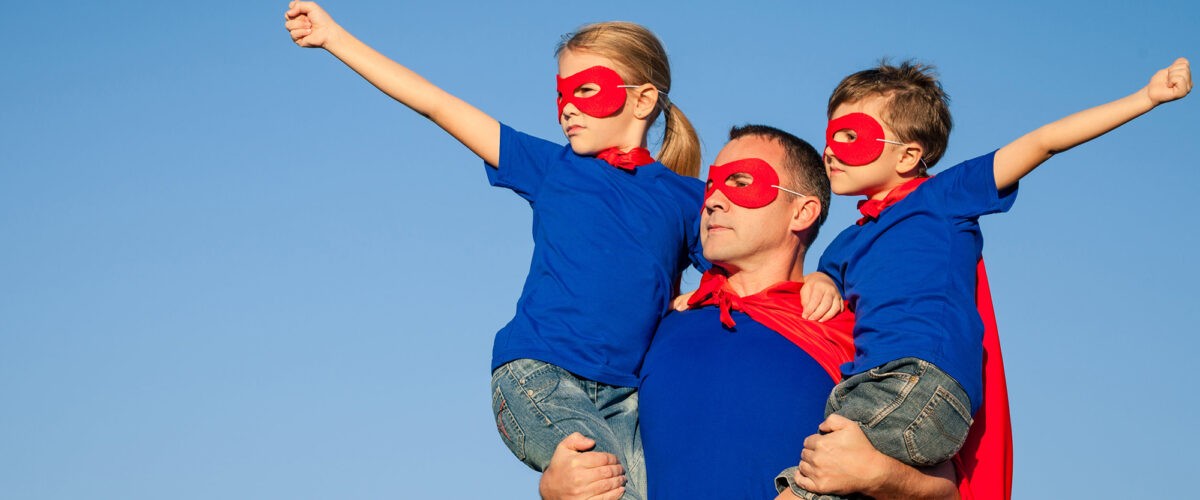In early December, Surgeon General Vivek Murthy issued a nationwide Advisory on Protecting Youth Mental Health in light of what he termed “the pandemic’s unprecedented impacts on the mental health of America’s youth and families, as well as the mental health challenges that existed long before the pandemic.”
Murthy’s response came on the heels of what the American Academy of Pediatrics declared to be a “State of Emergency in Child and Adolescent Mental Health” here in America.

Eric Minton
Much like our country’s crumbling bridges, tunnels and hold on democracy, Murthy’s address paints a stark picture of just how poorly American children were doing before the pandemic. One in five American children between the ages of 3 and 17 possess a mental, emotional, developmental or behavioral disorder, and over the last 10 years, the number of high school students reporting “persistent” feelings of sadness or hopelessness increased by 40%. Suicide rates among American children aged 10 to 24 increased by 57% between the years of 2007 and 2018.
Things were bad before the pandemic
If this was what it was like for our kids during more “normal” times, you can imagine the impact of the last two apocalypticish years without me spelling out for you what putting kindergartners on Zoom for a whole year probably does to their souls and standardized reading scores.
So instead of nihilistically describing how not-OK our kids are right now — for that, I recommend a digital subscription to The Atlantic — I’d prefer to talk about something else entirely. Which is this strange thing that seems to happen to American kids both before and after the world ends.
As a psychotherapist specializing in family therapy with adolescents, I find that no matter what is going on in our world, our schools, our communities and in the families I see at work and in my personal life, there is this inevitable expectation that if we can “fix” whatever is going on with “the kids” then everything else within us as their parents will just sort of fall back into place.
“There is this inevitable expectation that if we can ‘fix’ whatever is going on with ‘the kids’ then everything else within us as their parents will just sort of fall back into place.”
Colloquially, this ends up boiling down into a mantra I hear repeated in my office with regularity: “As a parent, you’re only as happy as your least happy child.”
Yes, which makes sense, on the face of it. These sentiments run rampant in our culture as a sort of Bat-signal for the “right” kind of anxious American parenting. You notice and pay special attention to the kid who is yelling, or crying, or digging his or her heels in, or who just can’t seem to find his or her way in the world, and because you are a good parent, you tether the whole of your efforts and energies on how this kid responds to your efforts.
Parental pressure on kids
Professionally speaking, this puts a helluva lot of pressure on that least happy child.
In America, kids aren’t so much people as they are products or proof-texts or grades for the kinds of parents we are. Intrinsically, we know this as we recoil in quiet judgment from parents whose kids didn’t “turn out,” or whose attitudes and efforts don’t meet the unyielding expectations of American awesomeness and productivity.
Even in our national conversations about how to combat the youth mental health “crisis” in America, there is this expectation that if we focus on the problem — such as the relative and growing not-OKness of our young people — then we can neutralize the impacts of all this (gestures wildly) on the thing that matters most to us as a society and as parents: that our kids turn out well no matter the circumstances.
“Before the pandemic, before the end of the world, our kids already were responsible for carrying the weight of our country’s hopes and dreams.”
Because if they turn out well, then we can finally feel at peace. If they read on grade level, then our schools and our teachers and our administrators will receive appropriate funding and support. If they increase their homework output or learn Algebra more quickly, then our future American workforce has a chance of competing in the global marketplace. If they’ll just stop yelling at us when their tablet dies, then we wouldn’t be so on edge all the time. If they would just pull it together, then things could get back to normal.
Before the pandemic, before the end of the world, our kids already were responsible for carrying the weight of our country’s hopes and dreams. They already were expected to keep producing, to keep achieving, to keep being OK, no matter the cost to their sleep, their souls or their sense of self.
Needing our kids to be OK
I feel this acutely as a parent who, in my son’s first few years on earth, noticed that whenever he fell or hurt himself on the playground his first response, no matter the damage, was a hearty “I’M OK!” even if he wasn’t. Sometimes my son would tell me he was OK, and then come back later with tears in his eyes and ask me to look at a cut, scrape or bruise that was bothering him.
At one point I turned to my wife, who is — to this day — a much better therapist than I, and asked: “Why does he do that?” And, without looking up from her book, she said: “I don’t know, but maybe it has something to do with the 33-year-old man who follows him up the playground jungle gym and asks him if he’s OK every 5 to 10 minutes.”
She said: “I don’t know, but maybe it has something to do with the 33-year-old man who follows him up the playground jungle gym and asks him if he’s OK every 5 to 10 minutes.”
Like I said, a much better therapist than I.
My son learned early in his life that I needed him to be OK even when he wasn’t. As an anxious new dad, I had accidentally made my son’s physical and emotional well-being responsible for my own happiness, security and stability, rather than the other way around. I sometimes still do this sort of thing now.
So do our schools.
So do our churches.
So does our government.
So does our hyperventilating economy.
So do our semi-professional youth sports programs.
What can we do?
The good news (I guess) is that I’m not alone in doing this to my son, and neither are you in doing it to your own kids. The question becomes, then, what do we do instead?
For starters, we take care of ourselves as parents. Not with more feedback from the self-care-Instagram industrial complex or by shame reading more well-researched articles about how something we thought was good for our kids is actually terrible, but with concrete support and solidarity from one another, our communities and (gasp!) even our government.
This isn’t just boilerplate therapeutic advice; actual scientific research bears this out.
Recently, the New York Times reported the findings of a study into the improved brain activity in babies raised by mothers in poverty after these families received an additional monthly cash stipend of $333 for the first year of their child’s life. One of the study’s researchers, Kimberly G. Noble of Columbia University, noted that the findings were “the first study to show that money, in and of itself, has a causal impact on brain development.” The takeaway being that when we give families even a small bump in financial support to take time off from work, to buy healthy foods, to feel less stretched and anxious about the future, and to spend more quality time with their children, it benefits their kids, and their relationships, and the lives of their entire families.
But I think we already knew that.
Just like I think you already knew that when you, as a parent, are able to be grounded in the truth of who you are independent of who your kid is, how they turn out or what they scream at you in front of strangers at Target when you won’t upgrade their phone, it benefits our kids, our relationships and our entire families.
Our militant, revolutionary parental OKness changes everything around us. When we as parents, as the adults in the room, recognize the problems we are seeing in our kids aren’t solely contained therein, it releases our children from being responsible for our happiness. It returns order to a world upended.
“Kids in pain are a truth, a window into an entire world in pain.”
Kids in pain are a truth, a window into an entire world in pain. They are our society’s pain made flesh. Their anxiety, depression and fears about the future are our own.
‘We are not alone’
Instead of anxiously talking them out of what they are feeling, or desperately pushing them into therapy or piano lessons while the world burns around us, I’ve found as a psychotherapist and a dad that the most important thing to do is to remind myself of what’s true about me as a parent, and then to bend down, look my son in the eyes, and remind him of the one thing all of us need to hear most right now:
That we aren’t alone, and we never have been, no matter how dark things get.
That we probably can figure something out, together.
And even if we can’t, we can cry and rage and work through it all anyway until we feel ready to try again.
So may you, whether you have kids, you know kids or you avoid kids at all costs, remember that you aren’t alone, and that if you aren’t a little sad or anxious or listless or confused or feeling ambivalent about going to work, then you are lying or you haven’t been paying attention. May you remember that when the kids around you are a little sad or anxious or listless or confused or ambivalent about going to school, that this is a completely normal response to a world out of control. May you remember that what they need most isn’t to be the problem or the solution to our problems. They need to be reminded that they aren’t alone right now.
“We aren’t alone, and we never have been, no matter how dark things get.”
And so do you, and so do I.
May you empathize with them, with yourself and with every other parent scraping by, first.
And then, after drying our eyes and changing into clean pants, may we band together as kids and parents and families and communities, may we bake casseroles and take care of one another, may we share our resources and our time, and may we begin creatively plotting for revolution, for the kind of world our kids, our families and ourselves deserve.
’Cause this one sure ain’t it.
Our kids already know this; they knew it before the pandemic. It’s probably why they were so sad back then. Maybe we should finally listen to them and their pain instead of just trying to fix them, or have them turn out OK, or force them to finally finish their homework.
Eric Minton is a writer, pastor and therapist living with his family in Knoxville, Tenn. He holds a bachelor’s degree in psychology from the University of Tennessee, a master of divinity degree from Fuller Theological Seminary and a master of science degree in clinical mental health counseling from Carson-Newman University.
Related articles:
Listen to the teenagers: Things are not right | Opinion by Eric Minton
Report from home: The parents are not all right | Opinion by Christy Edwards


